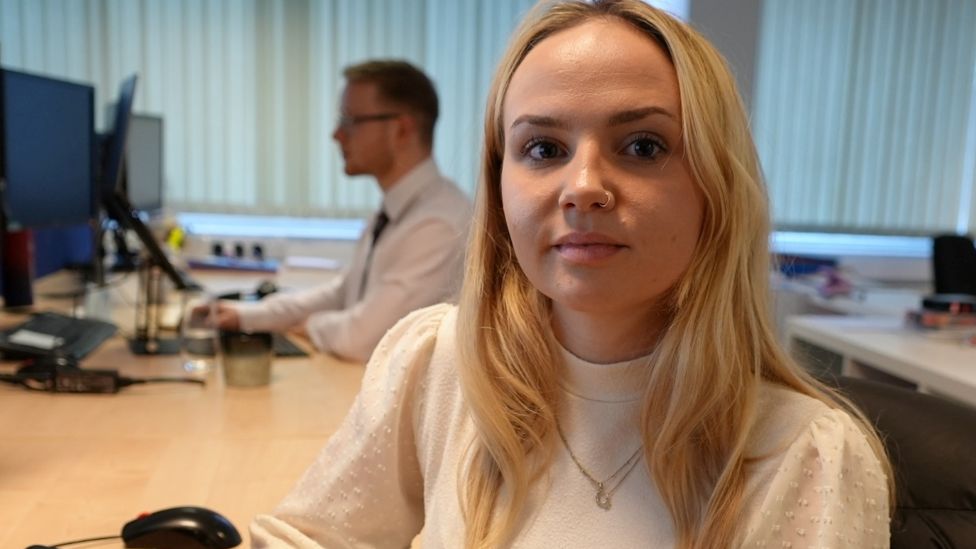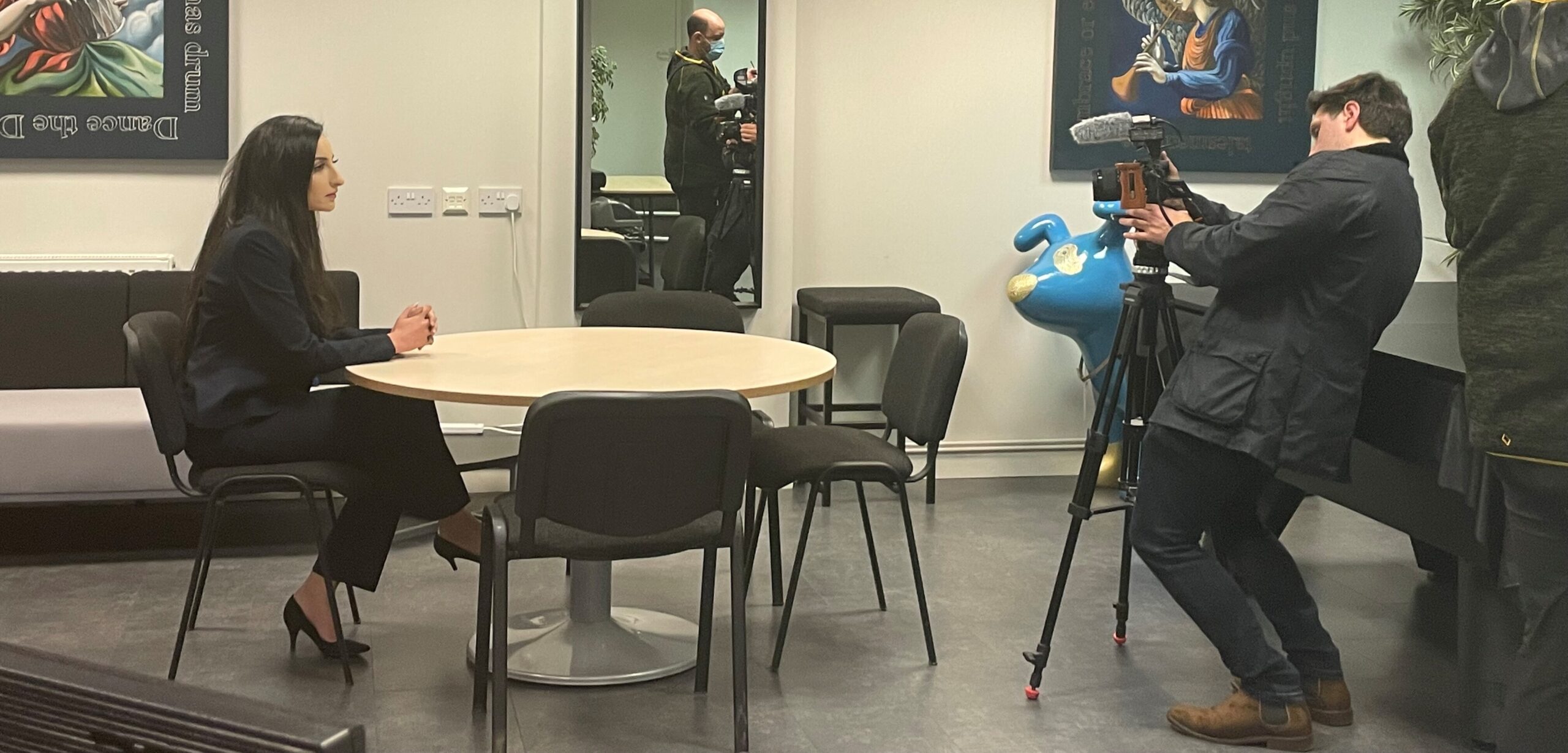BBC Wales Convey Law Feature: The Future of Hybrid Working

Office worker Abbie Garland believes home working has improved her well-being and made her more productive.
“Honestly, I can’t see myself working in the office full-time again,” said the 24-year-old conveyancer, who became her firm’s joint employee of the year.
The Covid pandemic has changed the world of work, with some people rarely, if ever, going into the office.
But while staff at one firm in Newport said home-working helped their mental health, some still prefer office life.
Conveyancing firm Convey Law has half of its 150 staff working from home, and wants to double its workforce.
The Welsh government has said it would like to see about 30% of staff working from home in the future.
Meanwhile, the Chartered Institute of Personnel and Development has said employers will have to accommodate home and office-based working from now on, if they want to attract the best young talent.
‘Pioneering’ a new way of working
Ms Garland, from Blackwood, Caerphilly county, said she would not have won employee of the year if she had been in the office full time.
“I feel more productive. I’ve got less distractions,” she said.
“The main thing is that it saves me a 40-minute commute, driving to work and driving home, saving time, money and helping the carbon footprint.
“I can use that time in other ways. I can walk my dog on my lunch break, which is really good for my mental health.”
Ms Garland said she and other home workers were “pioneering” a new way of working that would pave the way for employees going forward.
“I don’t mind coming in once a week just to see all of my friends, but I absolutely love working from home,” she said.
“It is totally the new normal.”
‘We’re like guinea pigs’
Conveyancer Rowan Connell, 25, said: “I feel like we are part of something that will serve generations to come.
“We’re a bit like the guinea pigs, and I think the trial has gone really really well, and will show companies, like our own company here, that it can be done.
“I think the stereotype is that people work from home and don’t get anything done, they laze about and clock off early, but it’s definitely not the case.”
However, she said she does prefer working in an office.
“I was keen to meet as many people as I could and coming into the office is a good way of doing that,” she said.
However, she admitted joining a new workplace during the pandemic “has been a strange experience”.
“It was quite awkward and uncomfortable, not like any other first day; not shaking hands, not quite sure of the etiquette of how to behave on the first day, when you’re not allowed to have those normal interactions.”
A new Princes Trust survey of 16 to 25-year-olds found a quarter of young people in Wales believed job prospects would never recover because of the pandemic.
In its annual youth index survey, carried out between December 2021 and January 2022, almost half of young people in Wales who responded said they would consider the impact a job would have on their mental health before accepting a position because of the pandemic.
In addition, almost 45% of respondents in Wales said the pandemic had made it more difficult to get a job.
Lesley Richard, head of human resource organisation the Chartered Institute of Personnel and Development in Wales, said companies offering hybrid working would attract the best young talent from now on.
But she said bosses would have to be better at managing home workers.
“Once they’ve found their feet, once they’re two or three months into the organisation, they might actually find it more productive to work from home, so it’s about giving them the choice,” she said.
Welsh government minister Lee Waters said Wales should adopt “a workplace culture that values and supports remote working”.



